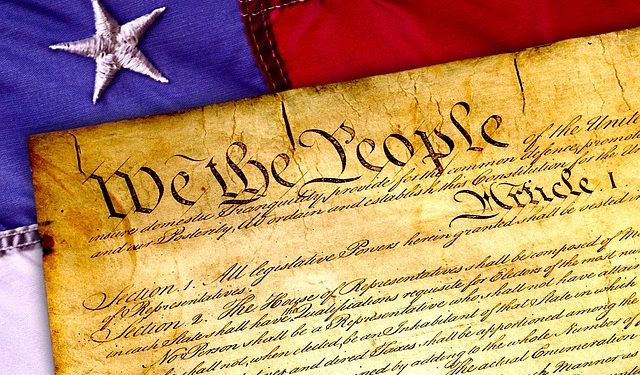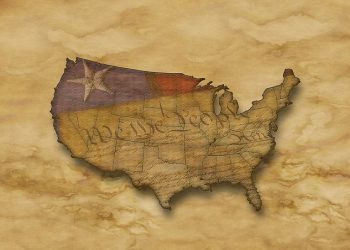Miranda Rights
The first ten amendments were indoctrinated into the Constitution to ensure that every person is entitled to basic personal rights and liberties. While each amendment is sacred, no amendment may be as important to law enforcement and the judicial process as the Fifth Amendment. The Fifth Amendment states:
“No person shall be held to answer for a capital, or otherwise infamous crime, unless on a presentment or indictment of a Grand Jury, except in cases arising in the land or naval forces, or in the Militia, when in actual service in time of War or public danger; nor shall any person be subject for the same offense to be twice put in jeopardy of life or limb; nor shall be compelled in any criminal case to be a witness against himself, nor be deprived of life, liberty, or property, without due process of law; nor shall private property be taken for public use, without just compensation.”
Ratified in 1791, the Fifth Amendment gives every person five specific liberties. These five basic rights granted to every person are as follows: the right to have your case represented in front of a grand jury before being tried for a federal criminal offense, the right to be free from being prosecuted for the same crime more than once, the right to remain silent when being prosecuted or interrogated for a criminal offense, the right to have our basic rights protected by the due process of the law, and the right to receive fair compensation when the government seizes private property for public use.
One very important law that has stemmed from the Fifth Amendment is the requirement of police officers to read suspects their Miranda Rights also referred to as the Miranda Warnings. The wording of the Miranda Rights is not uniformed throughout the U.S. The wording that police officers are required by law in giving the Miranda Warnings fall along the lines of, “you have the right to remain silent, anything you can or do can and will be used against you in a court of law. You have the right to an attorney, if you cannot afford one, one will be appointed for you.” The second half of the Miranda Rights is guaranteed by the Sixth Amendment, which states that every person is entitled to assistance on their behalf by legal counsel. Because the language in the Miranda Rights originated from the founding of the Constitution, it is utterly important that suspects are informed of these rights before interrogation in order to prevent any violation of the Constitution. In certain states, the suspect must acknowledge they understand these rights before any interrogation can be administered.
The Miranda Rights became established in 1966 after the case Miranda vs. Arizona. In this case, Ernesto Arturo Miranda was arrested on circumstantial evidence that linked him to a crime occurring ten days earlier. He was interrogated for two hours before signing a confession to kidnapping and raping an eighteen year old girl. Unfortunately, when this case took place, there was less awareness in society of the rights granted by the Constitution. At no point was Mr. Miranda informed of his right to counsel or his right to avoid self-incrimination. He signed the confession without the representation of any legal counsel. During the trial, Mr. Miranda’s court appointed attorney, Alvin Moore, objected to the confession due to the lack of knowledge represented by Mr. Miranda. Mr. Moore claimed that the evidence should be thrown out and that the confession was not made completely voluntarily. Mr. Moore’s objection was overruled by the court, and Mr. Miranda was found guilty and sentenced to twenty to thirty years imprisonment for each charge. Although Mr. Moore appealed the court’s decision to the Arizona Supreme Court, it was decided that because Mr. Miranda did not request an attorney at any point, the confession would be admissible and the decision would stand.
Following the state’s decision, the United States Supreme Court ruled that any evidence obtained before the suspect has been read their rights will be inadmissible in a court of law. In order for the evidence to be admissible, it is the responsibility of the police officer to make sure that the defendant has been read the rights and that they are understood. If a defendant is read and does understand these rights, then any communication after the reading will be considered admissible at trial. Once this ruling was mandated, there became a significant change on police officer’s arrest and interrogation procedures. The Miranda Rights are now a routine part of every arrest and are taken very seriously by the court.
The Supreme Court has upheld and clarified the nuances of the Miranda Rights as recently as June 2010 in the case of Berghuis v. Thompkins. In this case the Court ruled on the position of a suspect who understands his or her right to remain silent under Miranda v. Arizona and is aware he or she has the right to remain silent, but does not explicitly invoke or waive the right. Therefore, the mere act of remaining silent was, on its own, insufficient to imply the suspect has invoked his or her rights. Furthermore, a voluntary reply even after lengthy silence could be construed as implying a waiver. This was an extremely controversial issue that was also hard for the Justices. Evident by their decision of 5-4 vote for the Supreme Court Justices. Socially, this was incredibly controversial because these types of individual rights are incredibly important to our society and justice system.
Some may think that someone who has committed a heinous crime may not deserve to have the chance for their case to be dismissed over the lack of being read their rights; however, these rights are enforced to ensure that justice is brought to all members of American society. These rights are given to us to protect us from any abuse of power and any injustice that could occur out of a potential conviction of an innocent person. Without laws being enforced, there would be no other way to ensure that all people know their rights and what privileges they are permitted by the United States Constitution.


 نیازمندیها
نیازمندیها





















